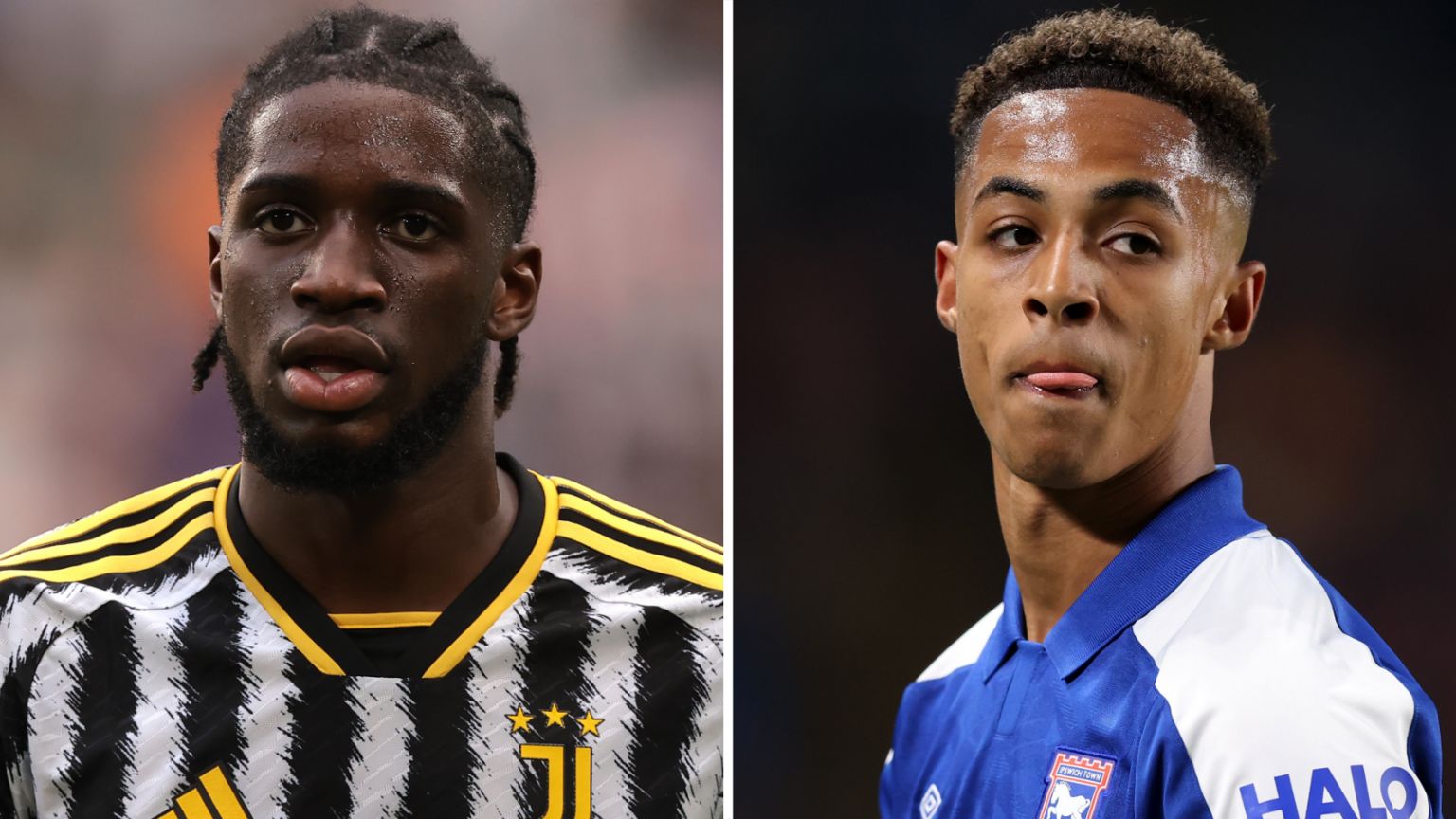
Image caption,
Samuel Iling-Junior (left) and Omari Hutchinson are two players to have moved this summer
Premier League clubs have already spent more in four days this summer – a total of £245m – than the entirety of the January transfer window.
Top-flight teams had been scrambling towards what was described as the ‘unofficial transfer deadline day’ on Sunday.
And more deals are being announced on Monday as the new accounting period begins at the start of July.
To avoid charges and possible points deductions clubs must be compliant with profit and sustainability rules (PSR) – and 30 June was a key date.
The summer transfer window does not officially close until Friday, 30 August but, as Nottingham Forest discovered to their cost last season, some Premier League clubs needed to get business done earlier.
Who has been most active?
Aston Villa, Everton, Chelsea and Newcastle have been the busiest since the window opened on 14 June.
Villa recorded a loss of £119m in their last accounts, dated 31 May 2023, so needed to move quickly to avoid any breach.
Everton were docked eight points last season for two separate breaches, while Chelsea have spent about £1bn since the Todd Boehly-led consortium’s takeover in 2023.
The majority of those Chelsea signings were recruited on at least six-year deals to spread payments across a long period, limiting the losses per year to help meet PSR requirements.
Newcastle, meanwhile, were reported, external still to have a £50m deficit by Saturday morning – so needed to get deals done urgently to avoid any potential points sanctions.
What deals have been done?
Villa and Everton have done business with each other, Lewis Dobbin moving to Villa Park and Tim Iroegbunam joining the Toffees, each for reported fees of about £9m.
Villa have also sold Omari Kellyman to Chelsea for £19m two years after signing him from Derby for £600,000. The midfielder made six appearances for Villa.
Meanwhile, Chelsea defender Ian Maatsen, who spent the second half of last season on loan at Borussia Dortmund, has moved to Villa for £35m.
Douglas Luiz’s players-plus-cash transfer from Villa to Juventus went through on Sunday for £42.35m.
On Monday English winger Samuel Iling-Junior, 20, and Argentine midfielder Enzo Barrenechea, 23, moved in the opposite direction for about £18.5m, with midfielder Ross Barkley also joining Villa from Luton for a reported £5m.
Leicester – who are already facing one charge for an alleged PSR breach – were put under a transfer embargo by the English Football League (EFL) in March but that ended once they became a Premier League club, following the top flight’s annual general meeting (AGM) this month.
Chelsea have agreed a £30m deal for Kiernan Dewsbury-Hall, with the midfielder representing Leicester’s best sellable asset, given he came through the club’s academy and will generate pure profit.
The Blues sold 20-year-old forward Omari Hutchinson to newly promoted Ipswich Town for £20m late last month and confirmed the signing of teenage forward Marc Guiu from Barcelona for £5m on Monday.
Newcastle were busy too, selling winger Yankuba Minteh to Brighton for £30m and midfielder Elliot Anderson to Nottingham Forest for a reported £35m, while signing defender Lewis Hall from Chelsea for £28m.
Also on Monday, newly promoted Southampton announced the £20m signing of English defender Taylor Harwood-Bellis from Manchester City and the free transfer of full-back Charlie Taylor from Burnley.
Brentford completed a club-record £30m signing of striker Igor Thiago from Club Bruges.
Why was 30 June so important?
Sunday marked the end of the financial year in the Premier League, meaning clubs needed to ensure they are compliant with PSR as they submitted their accounts.
Clubs cannot lose more than £105m over a three-year period – and even less if they have spent some of that period in the Championship.
Deals cannot be processed on 30 June itself, as it is not a working day, so some transfers were not confirmed and registered until Monday.
Several clubs are believed to have needed to sell, and last weekend about £75m in deals were agreed, which highlighted the necessity to trade as £100m was spent across the Premier League in the whole of January 2024.
Selling academy players generates 100% profit for clubs to put into their accounts, while the amount paid by the buying club is spread out – using an accounting practice called amortisation – over the length of the contract.
So if two clubs agree to sell players to each other, especially academy players, it provides a significant financial boost.
Why are some deals under spotlight?
The Premier League has written to every club after “a significant number requested clarification” following the recent swap deals.
Some clubs are concerned that rivals could be looking to sell each other players in order to exploit any loopholes in PSR and therefore limit their losses.
There is no suggestion clubs have broken the rules, but they have been told by the league’s director of governance that part of a transfer fee would have to be returned by the selling club if it decides a fee had been “inflated”.
>>> Read full article>>>
Copyright for syndicated content belongs to the linked Source : BBC Sport – https://www.bbc.com/sport/football/articles/cx724w5v641o